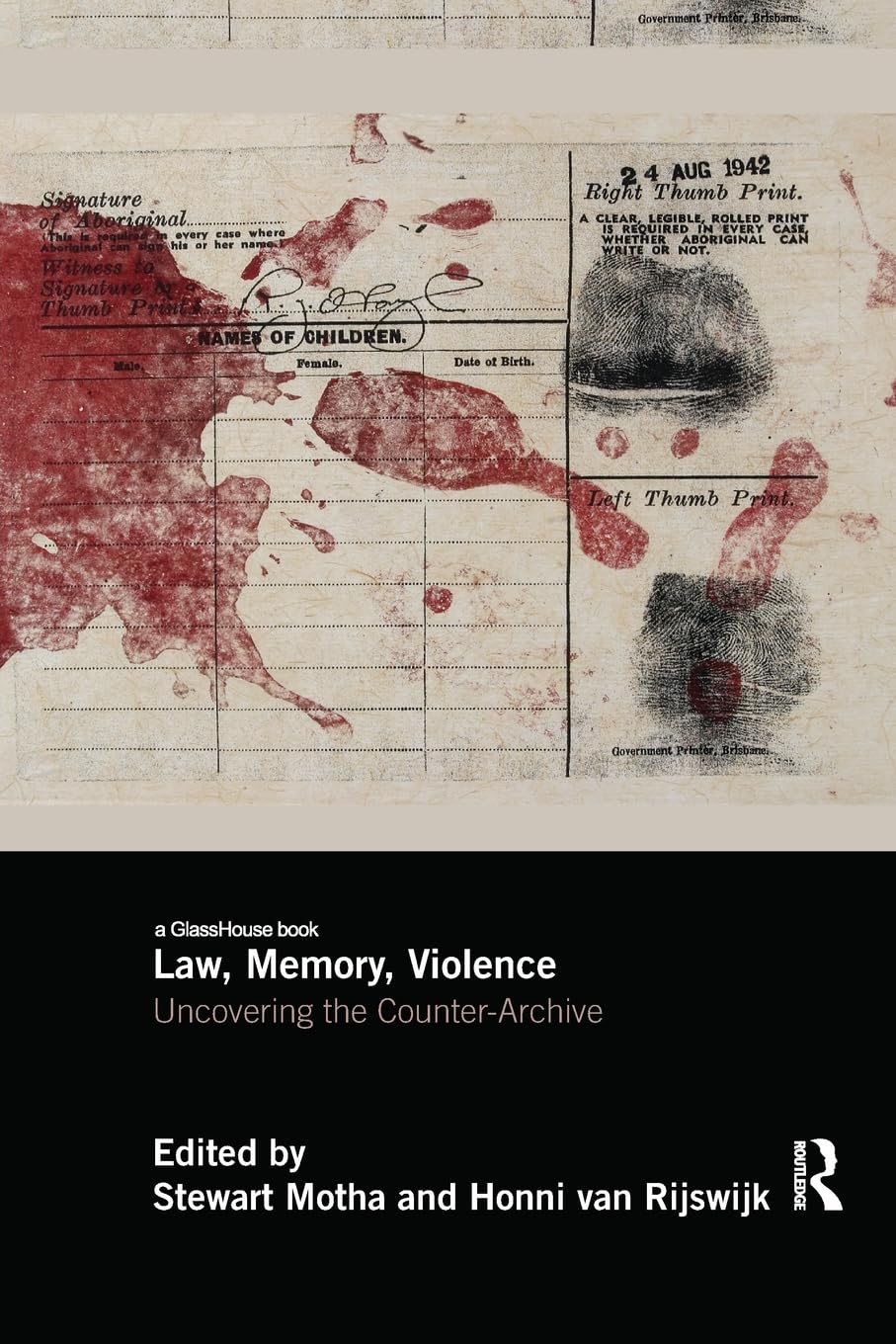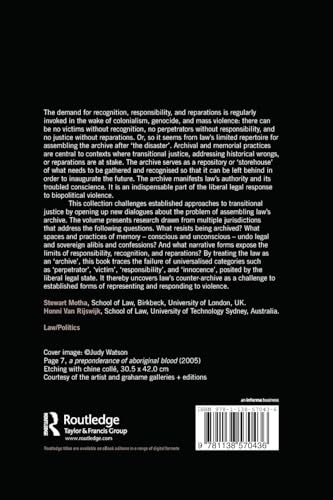Law, Memory, Violence: Uncovering the Counter-Archive
Law, Memory, Violence: Uncovering the Counter-Archive is backordered and will ship as soon as it is back in stock.
Couldn't load pickup availability
Genuine Products Guarantee
Genuine Products Guarantee
We guarantee 100% genuine products, and if proven otherwise, we will compensate you with 10 times the product's cost.
Delivery and Shipping
Delivery and Shipping
Products are generally ready for dispatch within 1 day and typically reach you in 3 to 5 days.
Book Details
-
Author: Stewart Motha
-
Brand: Taylor & Francis Ltd
-
Edition: 1
-
Binding: Paperback
-
Number of Pages: 254
-
Release Date: 12-10-2017
-
EAN: 9781138570436
-
Package Dimensions: 9.2 x 6.1 x 0.6 inches
-
Languages: English
Details:
The book challenges established approaches to transitional justice by exploring the role of law’s archive in addressing historical wrongs, such as colonialism, genocide, and mass violence. Archival and memorial practices are central in these contexts, where recognition, responsibility, and reparations are necessary to move forward. However, the book argues that law’s archive, traditionally seen as a storehouse of history, also manifests law’s troubled conscience and presents its limitations.
By focusing on what resists being archived, the book delves into spaces and practices of memory that undo legal alibis and confessions. It also examines the narrative forms that expose the limits of traditional concepts like perpetrator, victim, responsibility, and reparations. Ultimately, the volume critiques universalized categories posited by the liberal legal state, offering a counter-archive that presents an alternative way to represent and respond to violence.
This collection is a vital resource for scholars and students in law, history, political science, and social justice studies, particularly those interested in the intersections of law, memory, and the politics of recognition.







